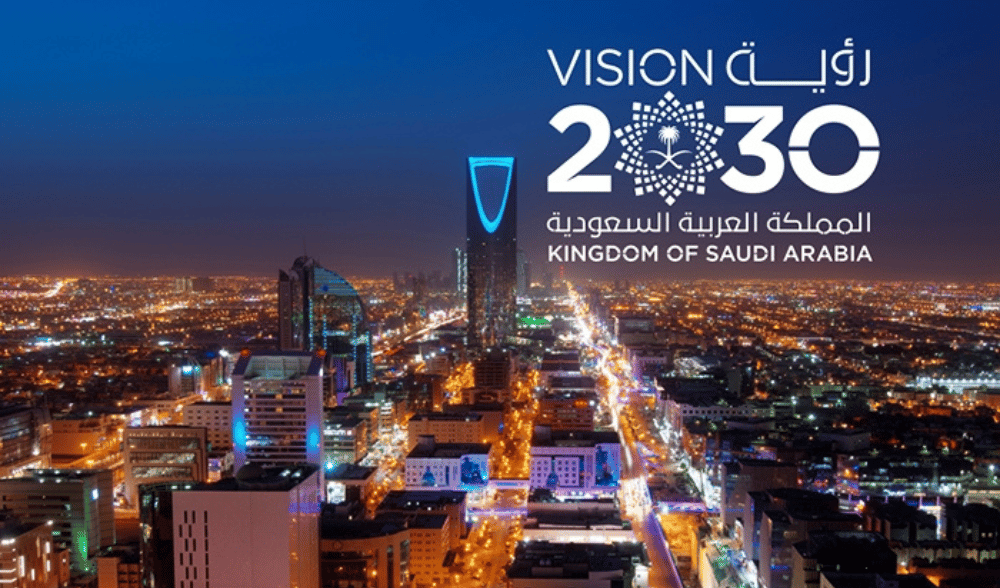ABDULLAH AL HAJERI WRITES – A vibrant society, a thriving economy, and an ambitious nation-these are the three pillars of Saudi Arabia’s mapped-out expansion of its 2030 Vision, a vision increasingly under world scrutiny. The Kingdom of Saudi Arabia’s Crown Prince, Mohammed Bin Salman’s 2030 vision, which includes reduced carbon emissions and economic diversification, will further contribute to Saudi becoming a leading industrial power that to secure global supply chains.
Some of Vision 2030’s large-scale projects can be perceived as novelties in nature and challenging in funding, particularly tourism and increased military funding. With oil prices down 34%, and OPEC cutting oil production in the U.S., many wonder if Saudi can remain one of the Middle East’s economic powerhouses.
The genesis of Vision 2030 goes as far back as to 1933, when an historic oil and gas agreement was signed with the Standard Oil Company during the reign of King Saud. By the late 1940s, Saudi Aramco mass-produced 500,000 barrels a day. This led to the Kingdom’s prominence in the establishment of OPEC (Organization of the Petroleum Exporting Countries) in 1960.
Now, though, there is more. Vision 2030 has been mapped out as a plan for the Kingdom’s reduced dependency on oil and for trailblazing the use of renewable energy sources. To accomplish this, Mohammed Bin Salman (MBS), the country’s prime minister and ruler, proposes to build a city-state in Saudi Arabia, referred to as NEOM. The city, announced in 2017, is expected to be a stunning tourist destination, with advancements in biotech and sustainable energy. The Saudis public investment fund aims to create 1.8 million new jobs in building the Metropolis haven, which would function as a stand-alone city, with NEOM Bay Airport offering commercial flights and, by 2030, powered entirely by renewable sources. The hope is this technology would inspire developed nations to implement alternative energy sources more quickly and efficiently.
Vision 2030 also hopes to implement healthcare advancement in the Kingdom. With over $20 billion in funding, innovative restructuring has been applied to develop streamlined AI. “Data and AI are at the heart of Saudi Arabia’s Vision 2030”, a spokesperson for the Saudi Data and AI Authority declared. Given the Kingdom’s increasing demand for physicians and rising healthcare costs, such developments could increase job opportunities in research, biotech, and healthcare.
The Vision is not all about financial profits. Aside from medical care and biotech, it’s drafted to enhance education and housing. Education in Saudi Arabia has been rapidly modernizing in recent years, with higher education exploring more flexible modes of learning and curriculum. In today’s competitive job market, a given skill might have but an average life of fewer than five years. NEOM opts to address this through an international lens and by cooperating with the private sector to initiate a skilled preparedness for what future markets will require.
In addition, the Housing Program, first developed in 2018, is to be further integrated into 2030’s Vision. Underprivileged families will be eligible for housing assistance, depending on their financial status. To date, the Kingdom has been able to cut the typical fifteen-year period of waiting for housing to only a few months. This has led to a 13% increase in Saudi citizens owning real estate in 2020, projected to reach 70% by 2030.
Vision 2030 is perceived to have learned its lessons from previous mega real estate ventures, notably The Economic Cities of the early 2000s, which continue to suffer high vacancy rates. Only one-sixth of the announced cities at the time ended up being created due to lack of investments by foreign entities. This time, Saudi has generous self-funding projections for the projects over the coming years.
Naysayers predicate their skeptical views on past development ventures of developing countries, but with youth leadership and strategic acumen, KSA’s Vision 2030 is definitely a visionary’s step forward toward a new model for GCC sustainability. Yes, it’s a very ambitious vision. The onus clearly is on the MBS government to pull it off, and much of the world is watching.

